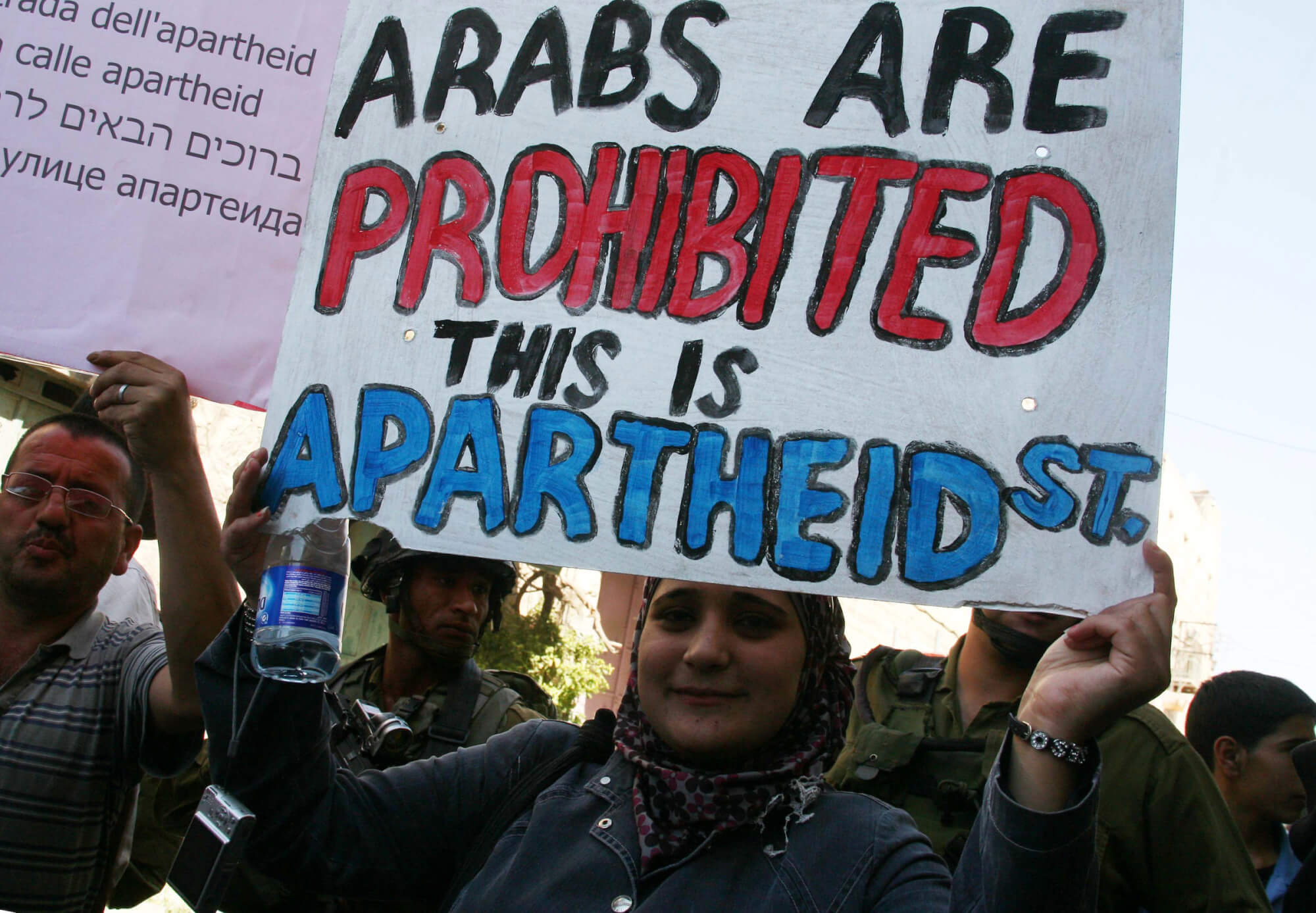
The Middle East Scholar Barometer is a joint initiative from the University of Maryland Critical Issues Poll and the Project on Middle East Political Science at George Washington University. It’s a survey that tracks the opinions of Middle East scholars based in the United States.
Back in February (before the forced evictions in Sheikh Jarrah and Israel’s most recent attack on Gaza) the group’s first round of findings were released. In that poll 59% of scholars described Israel as “one-state reality akin to apartheid.” 52% said that a two-state solution was no longer possible.
The group recently released their second round of results and found that both of these numbers have increased. 65% of scholars now say the situation is akin to apartheid and 57% say a two-state solution is no longer possible.
The Abrahams Accords are frequently celebrated by lawmakers on both sides of the aisle, but the poll shows that academics have a very low opinion of the agreements. 72% of those poll said they would negatively impact the prospect of Israeli-Palestinian peace and 70% said they’d have a negative impact on expanding human rights in the region.
The projects co-director Shibley Telhami (University of Maryland) and Marc Lynch (George Washington University) broke down the results in the Washington Post. They suggest that recent events in Palestine could have impacted the numbers, but they also point to the bombshell reports put out by B’Tselem and Human Rights Watch this year:
What explains such a significant increase in less than seven months? While it’s impossible to know for sure, two notable events intervened between the two surveys. First, the crisis in Israel following planned evictions of Palestinian families from their Jerusalem homes showed graphically the unequal treatment of Jews and Palestinians under Israeli control. The subsequent Gaza fighting between Israel and Hamas further focused global attention.
Second, two human rights organizations — the Israeli-based B’Tselem and the U.S.-based Human Rights Watch — released widely read reports. The B’Tselem findings describe the reality in Israel and the Palestinian territories as apartheid, while the Human Rights Watch report argues that Israel’s behavior fits the legal definition of apartheid.
You can read the entire questionnaire and the results online.
So where are the Palestinian voices in mainstream media?
Mondoweiss covers the full picture of the struggle for justice in Palestine. Read by tens of thousands of people each month, our truth-telling journalism is an essential counterweight to the propaganda that passes for news in mainstream and legacy media.
Our news and analysis is available to everyone – which is why we need your support. Please contribute so that we can continue to raise the voices of those who advocate for the rights of Palestinians to live in dignity and peace.
Palestinians today are struggling for their lives as mainstream media turns away. Please support journalism that amplifies the urgent voices calling for freedom and justice in Palestine.
Related posts:
Views: 0
 RSS Feed
RSS Feed

















 September 21st, 2021
September 21st, 2021  Awake Goy
Awake Goy 




 Posted in
Posted in  Tags:
Tags: 
















